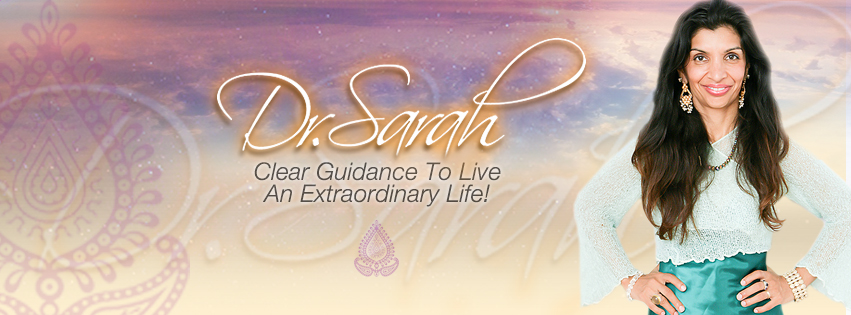Bach Flowers are not medicinal. They are energy medicine.
What is Bach Flower Therapy? http://sarahchanaradcliffe.com/therapeutic-approaches/bach-flower-therapy/
From:
Bach Flower Therapy is a form of energy medicine that can be used in conjunction with traditional counseling. It can be used to help ease daily stress, address mild mood concerns, calm anxious feelings and reduce frustration and anger. While Bach Remedies can help ease any negative emotional state, intense emotional distress is best assessed and treated by a mental health professional.
A Bach Flower “Remedy” consists of water that has been patterned with the energetic vibrations of one of 38 different flowers. The Remedy is added to a cup of water (or other beverage) 4 times a day. Bach Flower Therapy is named after Dr. Edward Bach, whose research led to its development in England in the 1930s. Like other energetic healing modalities, this treatment seeks to create balance in areas of energetic disruption. Bach Flower Treatment specifically addresses the emotional body of the energy system. Its purpose is to restore emotional harmony.
What Emotions are Healed with Bach Flower Therapy?
All negative emotions can be addressed with Bach Flower Therapy. Unlike psychotropic medications (i.e. medicines that treat depression, anxiety or psychosis), Bach Flowers treat specific shades of emotion. For example, they address sadness, despair, hopelessness, irritability, rage, resentment, panic, worry, concern about family members, uncertainty, self-doubt, shyness, lethargy, overwhelm, pain without physical cause, impulsivity, agitation, procrastination, daydreaming, vague anxieties, specific phobias and any other disturbing emotion.
| About the Flower RemediesThere are important differences between Bach Flower Therapy and traditional medical therapy. Bach Flowers are not medicinal. They can be taken along with any food, herb, health product or medicine without causing any interaction. In this way, they are most similar to water. Bach Flowers treat the unhealthy emotional tendency, meaning that when the disturbing emotion is no longer active, Flower Treatment is stopped. One does not continue treatment in such a case, because the Flower does not act preventatively like vitamins or medicine. Rather, it operates more like a process that undoes a knot (in the energetic flow). Once the knot is undone, there is no further need to keep undoing it! Bach Flowers can be taken safely by infants, pregnant or nursing women, the elderly, and even those who have flower allergies. Again, just as water itself cannot harm this population, Bach Flowers cannot cause negative reactions. Indeed, thinking of Bach Flower Remedies as being a collection of harmonious water crystals is really the most accurate way to conceptualize them. |
However, these remedies are preserved with a small amount of brandy. Those that are allergic to brandy or who cannot take it for other reasons can still utilize Bach Flower Therapy. Remedies need not be taken internally – they can be put directly on pulse points on the skin. (Those who keep kosher may be interested to know that Rabbi Eliyahu Falk of Gateshead England – a major authority in Jewish law – permits the use of Bach Flowers as long as they are dissolved in water. Since this is the normal and preferred way of taking the flowers, kashrut does not interfere at all with treatment. See Kosher-Bach)
What Do We Know About the Safety and Effectiveness of Bach Flowers?
Psychotropic medications have been subjected to extensive therapeutic trials before being put on the market. As a result, their specific actions and negative side effects are clearly defined, as are some of their underlying mechanisms. Nonetheless, even medicines are not completely understood in the effects they have on the human body (and even less so, for many of those currently being used on children). In contrast, only a small number of clinical trials have been published on Bach Flower Treatment in North America. However, these tentatively point to a positive effect on stress and mood. The Flower preparations have been used in Britain since the 1930’s – almost 100 years. They have endured due to their usefulness and harmlessness from the consumer’s point of view. At this point in time, they can be offered only experimentally in the North American clinical setting: people using the flowers do so at their own risk. For children particularly, this may be a reasonable first step before trying medication (in mild and moderate disorders) since virtually all psychotropic medications do have known short term negative side-effects as well as unknown long term effects. Moreover, almost all psychotropic medications (apart from those used to treat ADHD such as Ritalin), are experimental when used on the developing brain. In fact, recent research has specifically indicated that some medications can be dangerous for children and people under twenty-five years of age (an issue to be discussed with one’s prescribing doctor). As a result, in cases that do not require urgent medical attention, some parents may prefer to try a short trial of Bach Flowers with their child to see if symptoms can be sufficiently alleviated. Similarly, those adults who are concerned about the known side effects of psychotropic medications may decide to first try Bach Flower Remedies when suffering from mild to moderate emotional distress. Severe emotional distress and dysfunction should always be assessed and treated by a mental health professional who specializes in clinical disorders (i.e. a clinical psychologist or psychiatrist). Bach Flowers are not a substitute for psychotherapy or other treatments required for mental health disorders.
When one decides to experiment with Bach Flower Therapy, one should keep in mind that no treatment of any kind works equally well for everyone. Therefore, while many people experience excellent results with Bach Therapy, others do not notice any effect at all. A fair trial, however, should last weeks or months (depending on the therapist’s recommendation), rather than a couple of days. Bach Flower Therapy is gentle and subtle so that improvements tend to happen gradually and almost imperceptibly. It can be helpful to keep a brief written record of weekly mood descriptions, in order to track improvements and changes.
Bach Flower Therapy & Psychological Counselling
Bach Flower Therapy can be used as a self-help tool by anyone to help soothe daily irritability, moodiness, and stress of all kinds. However, when problems are deeper, repetitive, or chronic, psychological counseling may be more appropriate. Often, Flower Remedies can be used during the counseling process as a form of support between sessions or as a way of facilitating the psychological work itself.
Some examples can illustrate this principle. A person may be suffering a lot of stress-related to a sudden unemployment situation. His upset keeps him awake at night with an overactive mind and bothered during the day with minor panic attacks. Therapy can help him process his anxiety (which may be only a temporary stress response or maybe a deeper trauma that has just been triggered by the unemployment stress). Taking Bach Flowers may also help in the short-term by settling the mind for nighttime sleep, and calming the emergency response in the body to reduce daytime panic. Of course, clients might prefer to use traditional pharmacological resources for these needs instead of the Flower Remedies.
Another case illustrates the point. Suppose a mother has come to counseling to help eliminate her angry explosions at her young children. Successful counselling may take weeks or months (depending on the reasons for the outbursts). Meanwhile, the kids at home are still suffering. Bach Flower treatment may help the woman to feel calmer right away. With the help of the flowers, she might have more patience, more self-control, and less rage. Her family life might, therefore, be more stable and happy, while she learns parenting skills and anger-management strategies. If necessary, Flower Remedies may also help with the release of deeper psychological issues if it turns out that they are the underlying cause of the anger. Again, the flowers can help speed therapy along.
The Bach Consultation
The Bach Flower Therapist assesses the needs of a client based on a psychological interview. This may occur during the process of regular counseling, or as a separate session specifically for the Bach Treatment. The therapist then prepares a unique mixture of 1 -7 Flower Remedies for the client to take, depending on his or her psychological needs. Most commonly, only 2 -4 Remedies are used at one time. Progress is monitored on a weekly or monthly basis and the remedy is adjusted according to changes that have occurred during the period. When the client is feeling fine, Bach treatment is stopped. Psychological counseling may or may not continue at this point, depending on the needs of the client. For instance, a parent who is now calmly dealing with her children may end her Bach treatment, while continuing to come to counseling to continue learning parenting techniques or to work on her marriage or other personal issues.

